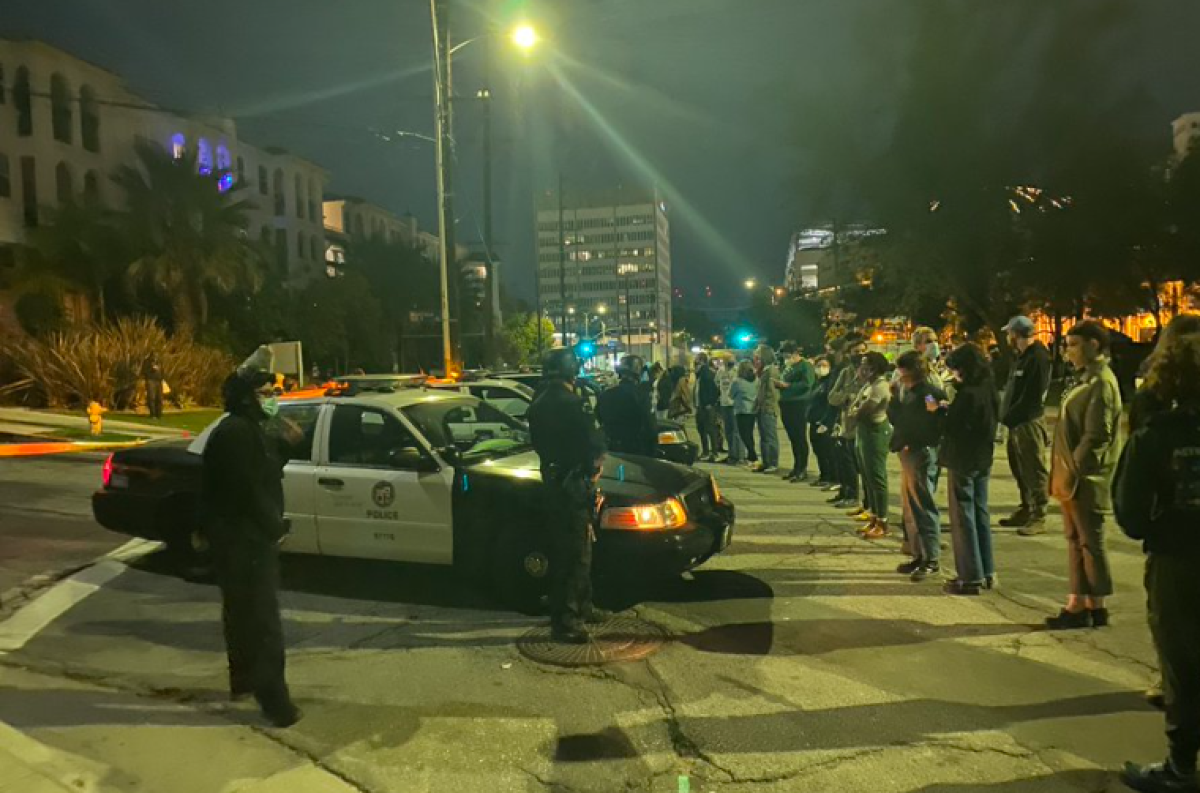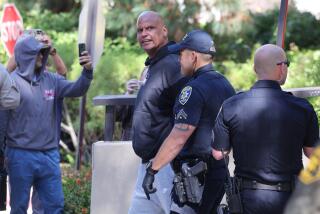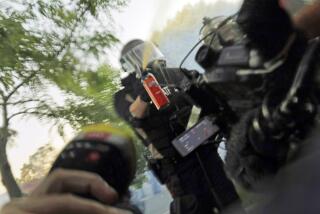Editorial: In arresting journalists, LAPD hasn’t learned its lessons from 2020

- Share via
Less than two weeks after the release of a scathing report on the LAPD’s performance during last summer’s racial justice protests, officers in Echo Park arrested numerous people Thursday, including news reporters, among them James Queally of the Los Angeles Times. Policing angry protests is tense and hazardous work, and it’s easy for officers to err in the heat of the moment. Yet arrests of journalists as they do their jobs signal that the department has not yet learned its 2020 lessons.
“I can understand the concern,” LAPD Chief Michel Moore said Thursday night in an interview with a Times editorial writer. “Is LAPD mindful and respectful of the role of journalists?”
Moore insisted that it is, adding that he had no information suggesting “that anyone was detained once they determined that anyone was a member of the media.”
It may have helped that Times editors and a Times lawyer contacted the department after hearing of Queally’s arrest. But not every reporter doing his or her work has the benefit of a large media organization with a direct line to top police officials.
Describing the events on Twitter, Queally noted that the officers were for the most part polite, despite proceeding to arrest and zip-tie him after he repeatedly told them he was a reporter and showing his LAPD-issued media credentials. Queally was harsher in describing a police sergeant. Supervisors at the scene of news events should be expected to facilitate journalists’ release once it is confirmed that they are indeed journalists. Instead, Queally said in a tweet, the sergeant didn’t care that he was a reporter and said, “This is the policy tonight.”
It’s also LAPD policy to set up an area expressly for reporters, but events move and reporters often have to choose between missing the news by staying in their cordoned-off zones or following the news and risking arrest, injury or worse. So even if police are legally permitted to issue dispersal orders and arrest people (including reporters) who stay on the scene, doing so is unacceptable and undermines journalists’ ability to keep the public informed.
In the wake of the summer unrest and LAPD responses to rowdy celebrations of last year’s Lakers and Dodgers championships, the department’s communications division created a video to be presented at roll call — start-of-shift briefings for officers — on how to identify press at protests. The message doesn’t seem to be getting through.
Earlier this month, Des Moines Register reporter Andrea Sahouri was acquitted after being put on trial for failing to disperse during a protest last year. Thankfully, officials in Los Angeles have not generally sought criminal charges against reporters covering protests and other police scenes — with the notable exception of Lexis-Olivier Ray, a freelance journalist reporting for the news website L.A. Taco. Ray wasn’t arrested at the time, but police brought his case to the L.A. city attorney for prosecution.
SB 98, a bill in Sacramento to expressly exempt reporters from arrest at protest scenes and allow them to appeal an arrest to a police supervisor, is currently in the Senate Appropriations Committee “suspense” file, and may or may not continue on its legislative journey this year. Police groups have opposed it.
The bill’s weakness is that it does not — because it cannot — distinguish which reporters are “duly authorized” and therefore should be given access not accorded the general public, from those who are not. So regardless of what happens with the bill, police would be wise to up their 1st Amendment game and their communications skills, for their own public relations, even if not for the right of people to be informed and the duty of journalists to inform them.
More to Read
A cure for the common opinion
Get thought-provoking perspectives with our weekly newsletter.
You may occasionally receive promotional content from the Los Angeles Times.










